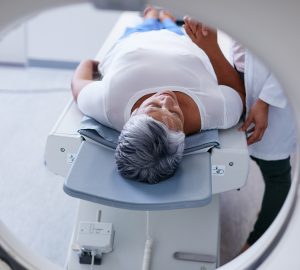For women, the threat of osteoporosis and the consequent risk of fractures is a pressing concern due to factors like hormonal fluctuations and age-related bone density decline. With women being four times more likely to develop osteoporosis than men, particularly postmenopausal women facing accelerated bone loss, understanding how to prevent osteoporosis is paramount. Fractures resulting from osteoporosis not only cause discomfort but also diminish mobility and independence, particularly in older adults. To mitigate this risk, women can focus on dietary adjustments, regular exercise, avoidance of detrimental habits like smoking and excessive alcohol consumption, and proactive screening measures like bone density testing. By adopting these preventive strategies, women can take proactive steps to maintain their bone health and reduce the likelihood of osteoporosis-related fractures.
What Women Need to Know
- 10 million Americans are affected by osteoporosis, around eight million or 80% are mostly women.
- Around 1/2 of women over age 50 will possibly break a bone as a result of osteoporosis.
- A woman’s risk of breaking a hip is equivalent to her consolidated peril of breast, uterine and ovarian cancer.
Reasons why women have more chances of having osteoporosis than men
There are numerous reasons why women are more likely to get osteoporosis than men, including:
- Women, in general, have thinner bones than men.
- Women have a hormone called estrogen that helps to protect bones. It decreases fast when women fall into menopause. Menopause tends to lead to bone-loss. This is the major reason for developing osteoporosis when women get to menopause.
5 steps to prevent from osteoporosis
Osteoporosis is a genuine risk to ladies’ health – overall one out of three women beyond 50 years old endures a broken-bone because of osteoporosis.
Here are some essential tips to five strategies women can practice to maintain muscle strength, which will prevent bone loss and manage osteoporosis:
1. Routine Exercise
Women should do 30 to 40 minutes of physical exercise, three to four times per week. This physical activity is comprised of a combination of resistance training and weight-bearing activity.
2. Eat bone-healthy foods
Women must try to eat food enriched in dietary calcium and protein, along with a lot of fruits and vegetables. Getting enough vitamin D through sunlight or a supplement is likewise significant.
3. Keep bad habits at arm’s length
To protect bone health, quit smoking. Drinking heavily can likewise negatively affect bone health. It is likewise critical to abstain from being excessively thin. Women who are underweight are at higher risk for osteoporosis than people who have a normal weight.
4. Become aware of your risk factors
It’s essential to be aware of osteoporosis and learn if you are at more serious risk of developing the disease. Osteoporosis is comprised of common risk factors including experiencing menopause before age 45; utilization of drugs known as glucocorticoids; or having rheumatoid joint pain or mal-absorption disorders, for example, celiac or Crohn’s disease. Women who have suffered from broken bones in the past and have a family history of osteoporosis are likely at more serious risk for the disease.
5. Examine your bone health
When women fall into menopause, they should visit their doctors to know their bone health and the risk of break involved. Women who are determined to face bone loss should pursue the routine treatment recommended by their doctors. Centers like Lafayette women’s health care are determined to offer you superior, compassionate care for women who are suffering with osteoporosis.
Medications can help prevent osteoporosis
Osteoporosis treatment may include medicine along with lifestyle changes. Find solutions to inquiries concerning osteoporosis treatment.
In case you’re experiencing osteoporosis treatment, you’re going in the right direction for your bone health. But maybe you have inquiries concerning your treatment. Is the medication you’re taking the best one for you? To what extent will you need to take it? For what medication does your specialist suggest a weekly pill when your friend takes a pill just once per month?
Which medications are utilized for osteoporosis treatment?
Bisphosphonates are the most well-known meds recommended for osteoporosis treatment. These include:
- Alendronate (Fosamax)
- Risedronate (Actonel)
- Ibandronate (Boniva)
- Zoledronic corrosive (Reclast)
Estrogen helps to play a key role in prevention and treatment
Hormones, for example, estrogen, can play an effective role in osteoporosis prevention and treatment. However, there has been some concern about potential reactions attached to the utilization of hormone treatment. The latest research advises to utilize the least dose of hormones for the most limited timeframe.
Treating osteoporosis includes treating and preventing fractures and utilizing medicines to strengthen bones. It is important to be very careful regarding this crucial treatment.









